Desktops Outpace Laptops in Cost and Speed
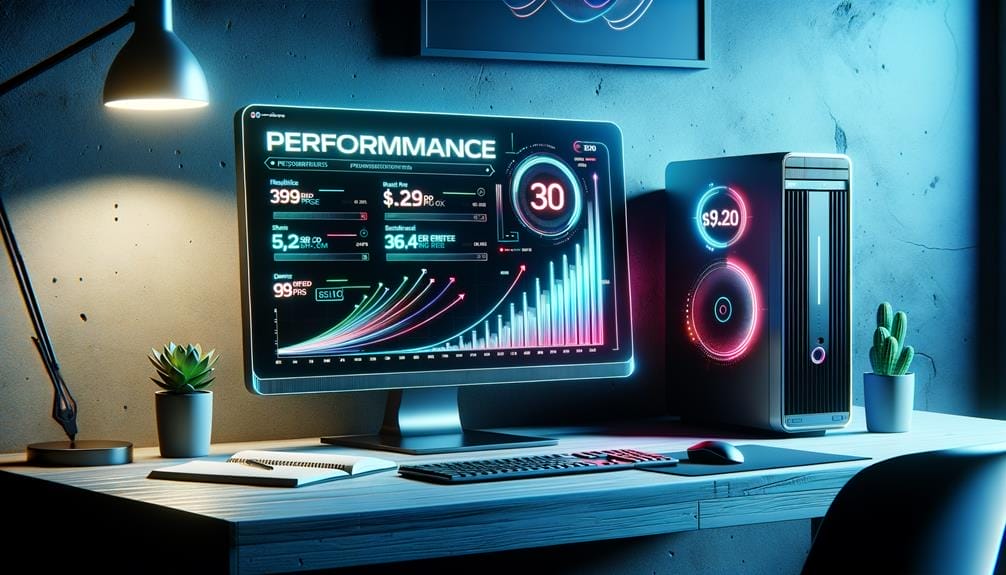
In the ever-changing landscape of computer technology, the ongoing debate over selecting desktops or laptops continues to be a subject of fascination for experts and everyday users alike.
While both options have their merits, the disparity in cost and speed between desktops and laptops has remained a point of significant interest.
As we delve into the intricacies of this topic, it becomes apparent that desktops hold a distinct advantage over laptops in certain key aspects.
The rationale behind this superiority, along with its implications for users and businesses, warrants a closer examination to fully grasp the dynamics at play in the realm of computing devices.
Key Takeaways
- Desktop PCs are generally cheaper than laptops.
- Desktop PCs offer better performance and processing power.
- Desktop PCs have more upgradability options.
- Desktop PCs have better cooling systems.
Desktop Vs Laptop Design
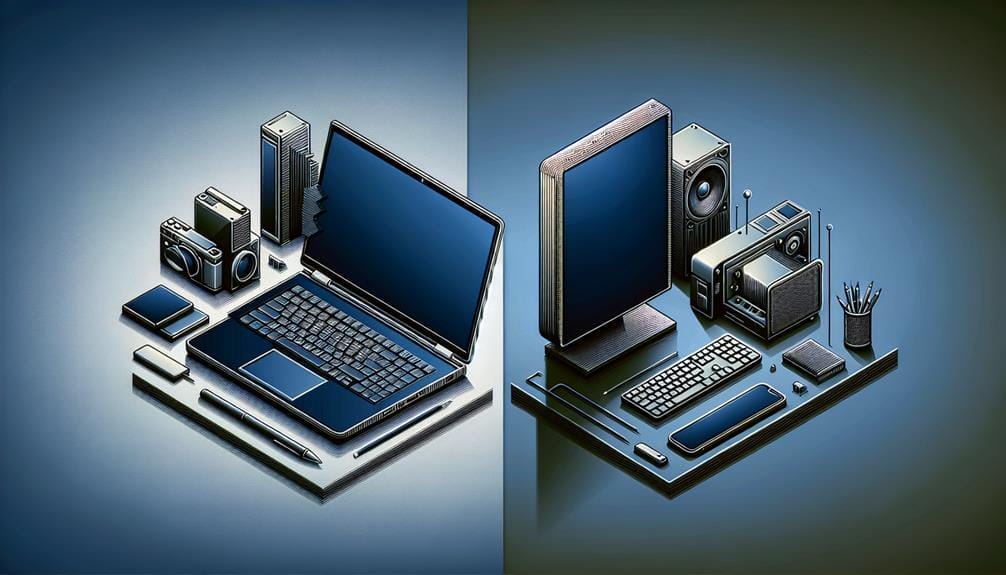
When comparing the design of desktops and laptops, it is evident that each type of computer system presents unique characteristics and considerations in terms of form factor, user accessibility, and overall functionality.
Desktops generally outperform laptops due to their larger form factor, which allows for better airflow and cooling. This superior thermal management enables desktops to handle heavier workloads and deliver higher performance compared to laptops.
On the other hand, laptops face thermal constraints due to their compact form factor, leading to compromised performance, particularly under sustained heavy usage. This limitation is a result of the trade-off between performance and portability in laptop design.
Therefore, while desktops excel in performance, laptops prioritize portability, catering to users' diverse needs in the realm of computing.
Reasons for Desktops' Superiority
In light of the inherent differences in design and thermal management discussed previously, the reasons for the superior performance of desktops over laptops can be attributed to several key factors related to hardware, cooling capabilities, and upgradability. Desktops outperform laptops in terms of affordability and performance due to better airflow and cooling systems, larger storage capacity, and greater upgradability options. The impact of thermal constraints on laptop hardware performance results in compromised processing power, limited upgrade options, and smaller storage capacity. The table below summarizes the key reasons for desktops' superiority over laptops.
| Reasons for Desktops' Superiority | Impact of Thermal Constraints on Laptops |
|---|---|
| Better airflow and cooling | Compromised processing power |
| Larger storage capacity | Limited upgrade options |
| Greater upgradability options | Smaller storage capacity |
Differences in Upgradability
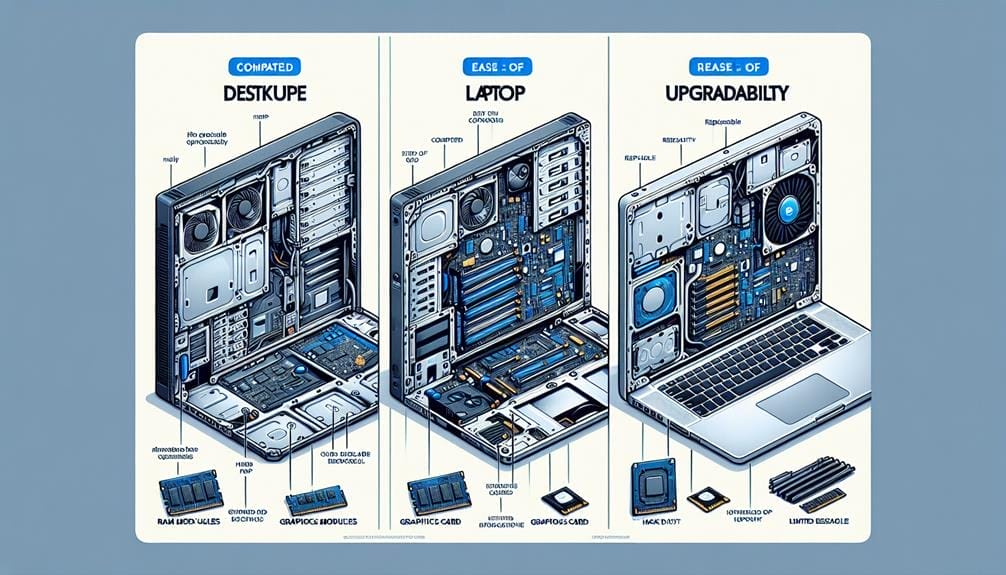
The differing upgradability options between desktops and laptops stem from their distinct form factors and design constraints, leading to significant implications for their long-term viability and adaptability to evolving technological needs.
Desktops are fully or near-fully user-upgradeable, allowing for easy replacement or addition of components such as CPUs, GPUs, RAM, and storage.
In contrast, laptops usually only allow upgrades to RAM or drives, with limited options for hardware replacements.
The user-friendly upgradeability of desktops contributes to their longevity and adaptability to changing requirements, while laptop limitations in this regard can result in a shorter lifespan and reduced ability to keep up with evolving technologies.
As such, the decision between a desktop and a laptop should consider the importance of upgradability for long-term usage and performance optimization.
All-In-One Functionality of Laptops
Consuming less power and generating less heat due to their more limited upgrade options, laptops represent a distinct category of computing devices. They offer an all-in-one functionality that integrates display, input methods, and processing capabilities into a single, compact unit.
This all-in-one nature of laptops provides several benefits, including portability, efficiency, and consolidated functionality. When comparing laptop and tablet functionality, laptops offer a more comprehensive computing experience with full-sized keyboards, larger displays, and more powerful processing capabilities.
The benefits of laptop portability are evident in their ability to provide a complete computing experience in a highly mobile form factor, making them ideal for professionals and users on the go. As such, the versatility and convenience of laptops make them a popular choice for users seeking a balance between performance and portability.
Advantages of Desktop PCs
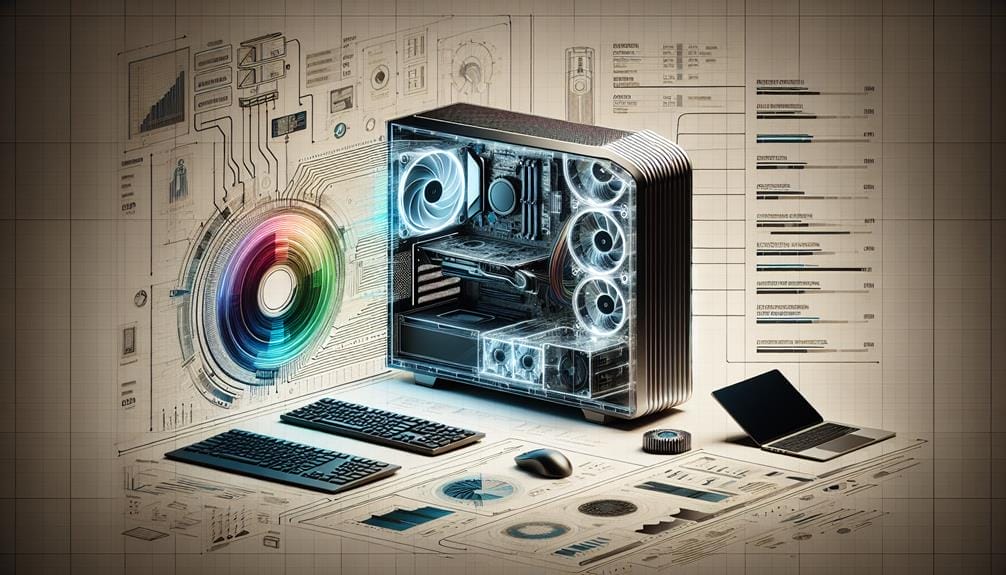
Desktop PCs offer superior performance and processing power compared to laptops, making them a preferred choice for users with demanding computational needs. The following table illustrates the advantages of desktop PCs and the reasons for their superiority:
| Advantages of Desktop PCs | Reasons for Desktops' Superiority |
|---|---|
| Cheaper than laptops | Better airflow and cooling |
| Better performance | Larger storage capacity |
| More upgradability options | Fully or near-fully user-upgradeable |
| Larger storage capacity | Not constrained by thermal limitations |
| Better cooling systems | Can accommodate high-performance components |
Downsides of Laptops
Having established the advantages of desktop PCs, it is essential to now examine the drawbacks associated with laptops in comparison to their desktop counterparts.
- Laptops' higher cost: Laptops are generally more expensive than desktop PCs due to their compact and specialized design, which often requires more expensive components.
- Laptops' thermal constraints: The compact nature of laptops limits their ability to dissipate heat effectively, leading to potential thermal throttling and performance limitations.
- Limited upgrade options: Laptops have restricted upgradability compared to desktop PCs, with limitations on components such as CPUs and GPUs.
- Smaller storage capacity: Laptops typically offer less storage space compared to desktop PCs, limiting the amount of data and applications that can be stored locally.
These factors contribute to the overall trade-offs that users must consider when choosing between laptops and desktop PCs.
Conclusion
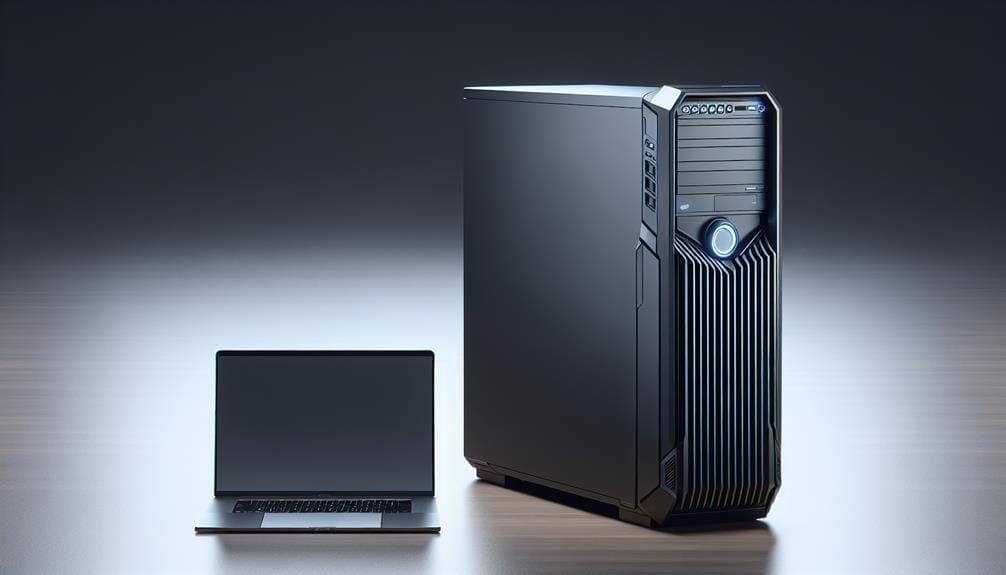
In summation, the assessment of the cost, performance, and upgradability factors between desktop PCs and laptops yields valuable insights for informed decision-making in selecting the most suitable computing solution.
The impact of technological advancements on the cost and speed of desktops and laptops is evident in the trade-offs between the two. Desktop PCs offer advantages such as better performance, processing power, upgradability, and cooling systems, making them ideal for power users and those requiring extensive customization.
On the other hand, laptops provide portability, all-in-one functionality, and convenience, catering to minimalist users or those with limited space. Understanding the pros and cons of desktops and laptops for different user needs is crucial in making the right choice.
As technology continues to evolve, the cost and speed of both desktops and laptops will be further influenced, affecting their suitability for various use cases.
Conclusion
In conclusion, the comparison between desktops and laptops reveals that desktops have a clear edge in terms of cost-effectiveness and performance. The design, upgradability, and all-in-one functionality of these computing devices contribute to the superiority of desktop PCs.
While laptops offer portability and convenience, their limitations in these areas make desktops a more favorable choice for consumers and businesses seeking efficient and powerful computing solutions.

